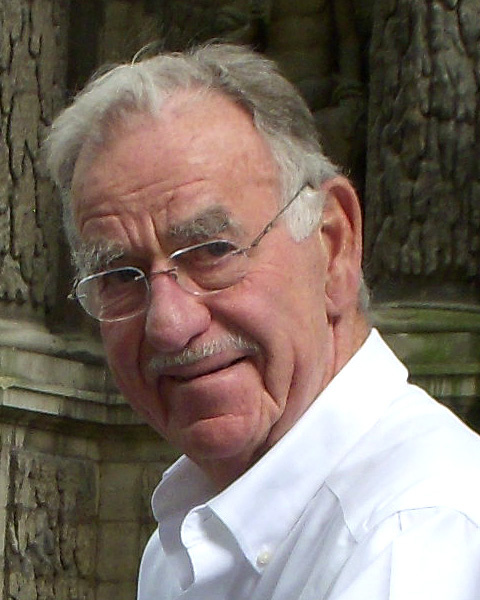
B.J. Stiles
Biography
A desire to “make a difference” led the son of a Texas Depression-Era dirt farmer on a journey that included the Civil Rights protests of the South, the Kennedy compound, the front lines of the AIDS crisis, and an invitation to the White House.
B.J. Stiles was born at home on a farm near Maypearl, TX on February 6, 1933. In 1939, the family moved to Midlothian, TX where he graduated from high school in 1950. He is the second of four sons, and is a father, grandfather and great-grandfather.
B.J. completed a B.A. degree from Texas Wesleyan in 1954, and a B.D. at Perkins School of Theology in 1957 and was ordained an elder in the Central Texas Conference of The United Methodist Church in 1957. Following seminary, he joined the campus ministry staff of the Board of Higher Education in 1957.
In 1960, he became the editor of motive magazine, the magazine of the Methodist Student Movement. During his nine years tenure, he grew the circulation by several thousand, won numerous awards, and treated his readers to provocative articles and captivating art. It fostered and brought visibility to both prominent and promising artists, writers, and poets. In 1966 Time magazine said motive stood out among church publications “like a miniskirt at a church social.” It was the single runner-up to Life as Magazine of the Year in 1965. It influenced countless young visionaries of their generation, including Hillary Clinton, who in her 2003 memoir cited motive as having guided her faith and her politics.
In 2015, Boston University School of Theology (BUST) honored B.J. and the history of the magazine by digitizing every issue since its founding in 1939 (motivemagazine.org). On September 15, 2015, BUST mounted an exhibition of selected articles, editorial, art and poetry taken from issues of motive during B.J.’s editorship and hosted a symposium announcing the motive recognition project.
Another motive admirer has noted:
“In the 1940s motive magazine spoke eloquently to my student generation. It deepened our understanding of the arts and world affairs as well as our religious faith. Two decades later, in the tumultuous 60s under the editorship of Stiles, it became ever bolder. Its demise has left younger student generations without the kind of religious-worldly guidance they need – ever so badly need.”
Tom F. Driver
The Paul J. Tillich Professor of Theology and Culture Emeritus
Union Theological Seminary
In 1968, B.J. took a leave-of-absence from motive to join the Presidential campaign of Robert F. Kennedy. Soon after RFK’s assassination, the Kennedy family asked B.J. to join the staff of the newly-formed RFK Memorial. He and his family moved to Washington, D.C. in 1969, where he launched and directed the RFK Fellows Program. The domestic service program sent young adults to impoverished areas of the United States to engage in focused community organizing among populations of Latinos, Native Americans, African Americans, and many others. In 2018, surviving alumni of the program assembled at the 50th Anniversary Memorial Service for RFK at Arlington Cemetery, where B.J. was a speaker.
After leaving the RFK staff in 1971, he held senior positions at the Urban Institute, the National Endowment for the Humanities and the Council on Foundations. While at the Council, the AIDS epidemic began, and B.J. left his position at the Council to begin what became a long-time career in AIDS leadership. He published a series of editorials in major U.S. newspapers about the crisis, and shortly thereafter, Dr. Mathilde Krim recruited B.J. as a consultant and writer to assist her in founding the American Foundation for AIDS Research (amfAR).
During the early days of AIDS, he acknowledged his long-denied homosexuality, amicably ended his 25-year marriage, and became active in numerous LGBT-AIDS organizations. In 1987, he founded the National Leadership Coalition on AIDS and mounted pioneering efforts to address AIDS as a workplace challenge. In the early 1990’s, the Coalition merged with the National Community AIDS Partnership to become the National AIDS Fund where he served as CEO until his retirement in 1999. He attended AIDS conferences around the world including Chennai, Berlin, Paris, Stockholm, Yokohama, and the first World AIDS Conference, held in Atlanta. B.J. was a confidante of Sandra L. Thurman, and after she was named Director of National AIDS Policy for President Bill Clinton in 1997, B.J. accepted several invitations to provide consultations and expertise at the White House.
In 1984 he met Steven McCollom, an architect, and began a long-term partnership, leading to their marriage in 2008. The couple moved to San Francisco in 2000, where they now live.
(This biographical statement provided by B.J. Stiles.)
Biography Date: March 2018; rev. February 2019
Tags
Methodist (UMC, United Methodist Church) | AIDS | Author/editor | Clergy Activist | motive
Citation
“B.J. Stiles | Profile”, LGBTQ Religious Archives Network, accessed April 25, 2024, https://lgbtqreligiousarchives.org/profiles/b-j-stiles.
Remembrances